
It is essential for companies to gain and maintain stakeholder trust to conduct business and increase long-term corporate value in a drastically changing society. The Group promotes strict compliance with laws and risk management to increase the soundness and transparency of management and reinforce governance.
Assessment: Achieved/Steady Progress Not Achieved
| KPI | Fiscal 2020 Results/Progress | Assessment |
|---|---|---|
| Steady operation of Group-wide risk management |
The Group bases its activities in Group-wide risk management concepts with reference to ISO 31000, a set of guidelines for risk management methods. In fiscal 2020, our risk management systems underwent a redefining and recategorization of risks, with our actions reorganized based on risk category. Risk Management | |
| Compliance training tailored to business characteristics and social movements, etc. |
The Group conducts compliance training every year to increase awareness and knowledge of compliance among executives and other employees. In fiscal 2020, in addition to annual rank-specific compliance training, we held training programs in Japan and overseas on a number of topics, such as harassment, tailored to business characteristics, social trends, and other factors. Rigorous Compliance |
 Strengthen Business Execution Systems
Strengthen Business Execution SystemsThe Group is working to strengthen its governance structure in order to have a firm grasp on rapidly changing business environments,
to accelerate decision-making and business execution, and to achieve fair and highly transparent management.
The Board of Directors was established to discuss matters specified by laws, regulations, and the Articles of Incorporation, as well as other important management issues. The Board of Directors is composed of the president and eight directors (as of June 2021) (seven male directors, one female director). Auditors can also attend the meeting and express their opinions. In accordance with laws, regulations, and the rules of the Board of Directors, transactions involving conflicts of interest between directors and the Company are subject to approval by the Board of Directors.
As an advisory organ to the president, the Executive Council was established to discuss important matters regarding company management and to report the state of business execution. The Executive Council is composed of the president and executive officers designated by the President. Full-time Auditors can also attend the council meeting and express their opinions.
Company compensation for the executives consists of fixed monthly compensation based on the relevant individual’s role, and variable performance-based bonus payments. The bonus is determined by the consolidated business results of the Company as well as ENEOS Holdings. The Company does not have an executive officer retirement benefit program. The share-based payment system was implemented in July 2017. The share-based payment system applies the Board Incentive Plan (BIP) to Board Members, etc. to provide ENEOS Holdings shares according to individual role and performance as part of the incentives program.
Auditors attend Board of Directors meetings, Executive Council meetings and other important meetings of the Company to express their opinions as needed to increase the effectiveness of audits. In addition, auditors endeavor to understand the state of business execution by individual executives of the Company and the Group companies, through interviews, and through the inspection of documents. Furthermore, auditors also receive periodic reports on audit plans, progress, and results from the Internal Auditing Department and the accounting auditor while enhancing cooperation through the exchange of information and opinions.
The Company appointed a new outside director in April 2021. With the recent growing calls from society to strengthen our internal controls, we decided it would be best to appoint an outside director to incorporate new perspectives in judgment and new stimuli, as well as provide an external oversight function.
Each Group company is placed under the jurisdiction of the appropriate operating or corporate department of the Company based on its business line, and the execution of its operations is managed and supervised by that department. Important matters regarding the business management of individual Group companies are reported to the Company through the relevant supervising departments. If necessary, they are also reported or discussed at the Executive Council and other important meetings.


Click to enlarge
The Group has an internal control system to ensure the effectiveness and propriety of operations in accordance with the Basic Policy on Establishment and Operation of Internal Control Systems.
Previously, we had established the Internal Control Council as an advisory organ to the president, and the Internal Control Promotion Committee to provide advice to and assist with the duties of the Internal Control Council. However, following a review of the president’s advisory bodies from the perspectives of effectiveness and efficiency, the Internal Control Council and the Internal Control Promotion Committee were abolished as independent bodies as of October 1, 2020. Going forward, the Executive Council will deliberate on the status of internal controls to further enhance the effectiveness of governance and improve the operational efficiency of the Company and the Group.
We conduct internal audits across the entire JX Nippon Mining & Metals Group to investigate, discuss, and assess the state of business administration, operations, and asset preservation from the standpoints of legality, efficiency, and effectiveness. The Internal Auditing Department is in charge of these functions.
The Internal Auditing Department establishes a medium-term policy at three-year intervals and drafts auditing plans for each fiscal year to ensure systematic internal audits. Internal audits of Group companies are conducted in collaboration and cooperation with auditors dispatched from the Company. Based on the results of these audits, proposals for necessary improvements are made, with progress tracked for corresponding actions. Audit results and findings are reported to the president of JX Nippon Mining & Metals, to the relevant Group company, and, as necessary, to the Executive Council.
 Rigorous Compliance
Rigorous Compliance2. Compliance with laws and regulations and engagement in fair trade
We will comply with domestic and/or overseas laws and regulations, and will engage in fair, transparent and free competition and trade based on the fulfillment of our social responsibilities.
Measures related to compliance in the Group are determined at Compliance Committee meetings (twice yearly in principle). The Committee consists of executives from the Company and other major Group companies in and outside Japan. In response to reports on the state of compliance provided by individual departments of the Company and Group companies, the Compliance Committee evaluates the risk of fraudulent acts, legal violations, and other misconduct related to business operations, and reflects the results in setting priority issues and formulating education plans.
To increase reliability, we have outsourced the Group’s whistleblower program to an external organization. This external organization is responsible for accepting anonymous reports from whistleblowers. We have also taken a wide range of measures to increase awareness of the program throughout the Group. Such measures include displaying posters at individual Group company sites to publicize the program, posting articles in pocket editions of the Group Philosophy, which is distributed to all employees, opening a special section on the Company intranet, and introducing the program during compliance education sessions. In fiscal 2020, we received several reports through the program and took necessary measures in all instances in accordance with the relevant rules and regulations while taking due care to protect whistleblowers.
The Group determines priority targets regarding compliance for each fiscal year to examine the actual application of related rules and regulations by Group companies and to make improvements when issues are identified in the structure or operation.
Companies within the JX Nippon Mining & Metals Group have undergone audits to monitor progress in dissemination and application. In order to prevent violations or suspected violations of anti-bribery laws and regulations by Group company executives and employees, we have established an anti-bribery system founded on the JX Nippon Mining & Metals Group Anti-Bribery Regulation. This system includes the requirement of a prescribed set of checks when providing entertainment, gifts, etc. to a public official or similar person, and approval from a responsible party when certain conditions are met. In fiscal 2020, we continued to check application based on the aforementioned regulation, and confirmed that these were generally being applied properly. (There were no adverse dispositions issued by regulators in regard to bribery.)
The Group has established the Program for Compliance with Competition Laws, which includes rules such as those requiring all employees to report in advance planned transactions or gatherings with competitors to confirm that that they do not violate competition laws, requiring individual managers to submit periodic reports to the head office, and so on. In fiscal 2020, we continued to check application based on the aforementioned program, and confirmed that these were generally being applied properly. (There were no adverse dispositions issued by regulators in regard to anti-competitive behavior.)
We conducted complete inspections for compliance with environment and safety laws at 26 Group sites in fiscal 2020. We confirmed that environment-related and occupational health and safety-related laws were thoroughly understood by employees at all Group company sites and no serious lack of understanding was observed. All sites are also responding appropriately to matters requiring improvement.
We conducted inspections for compliance with personnel and labor laws at seven Group sites in fiscal 2020 and confirmed that they were properly managed.
The Group has established the Program for Compliance with Competition Laws, which includes rules such as those requiring all employees to report in advance planned transactions or gatherings with competitors to confirm that that they do not violate competition laws, requiring individual managers to submit periodic reports to the head office, and so on. In fiscal 2020, we continued to check application based on the aforementioned program, and confirmed that these were generally being applied properly. (There were no adverse dispositions issued by regulators in regard to anti-competitive behavior.)
We conducted inspections for compliance with personnel and labor laws at seven Group sites in fiscal 2020 and confirmed that they were properly managed.
The Group facilitates the fulfillment of compliance education to increase awareness and knowledge of compliance among executives and other employees, and conducts a variety of compliance and legal training sessions in Japan and overseas based on business characteristics and social trends.
The Group held overseas compliance training at Group companies in China* in March 2021, targeting a total of 71 staff in managerial positions. Given the spread of COVID-19, these sessions were held entirely over Zoom, except for live sessions at our Shanghai sites (JX Nippon Mining & Metals Shanghai Co., Ltd., and Nikko Metals Shanghai Co., Ltd.). Attorneys from advisory law firms were invited to provide lectures at each site on prohibition of bribery, compliance with anti-unfair competition laws, prevention of harassment, protection of trade secrets, protection of personal information, prohibition of private use of corporate assets, prohibition of conflicts of interest, and other important issues, providing specific examples in China. These sessions offered excellent opportunities for participants to deepen their understanding of compliance. Going forward, we plan to continue studying and implementing overseas compliance training based on trends in legal revisions, regional characteristics, and other factors.
* JX Nippon Mining & Metals Shanghai Co., Ltd., Nikko Metals Shanghai Co., Ltd., Nippon Mining & Metals (Suzhou) Co., Ltd., Nikko Fuji Precision (Wuxi) Co., Ltd., JX Nippon Mining & Metals Dongguan Co., Ltd., Shenzhen Nikko Shoji Co., Ltd.

Joint training in the Shanghai area

Training at Shenzhen Nikko Shoji Co., Ltd.
The JX Nippon Mining & Metals Group recognizes that the proper fulfillment of tax obligations in the countries and regions where a company does business is one of the most important social responsibilities that it should fulfill. Based on this, we are fostering awareness of tax compliance and working to maintain our tax governance system in accordance with the ENEOS Group Tax Matters Policy.
1. Basic Approach
Companies have a social responsibility to appropriately honor their tax obligations in the countries and areas where they conduct their business activities.
2. Compliance with Applicable Laws and Regulations
We comply with the relevant tax laws and regulations in the countries and areas in which we conduct our business activities.
We conduct our business activities in accordance with the purposes of the rules regarding international tax matters (such as the OECD Transfer Pricing Guidelines for Multinational Enterprises and Tax Administrations and the Base Erosion and Profit Shifting Project).
3. Fostering Awareness of Tax Compliance
Through continuous training concerning tax matters and other relevant training, we make efforts to maintain and improve our awareness of tax compliance.
4. Optimization of Tax Costs
By using the Advance Pricing Arrangement and other relevant systems, we attempt to obtain agreement with tax authorities, and make efforts to reduce risks and optimize costs.
5. Establishment of Relationships of Trust with Tax Authorities
At the request of tax authorities, we timely and properly provide them with necessary information.
 Risk Management
Risk ManagementWe identify, analyze, and assess the various risks surrounding our business based on future projections and changes in the internal and external environment, implement measures such as reducing, transferring, and retaining these risks, and monitor their status. In this way, we appropriately manage risk, and act on a daily basis with the goal of supporting the management of the JX Nippon Mining & Metals Group.
6. Enhancement and strengthening of risk management
We will establish a risk management system based on scientific data to enhance and strengthen risk management.
At the Group, we select important risks, approve response plans for each important risk, and monitor these plans, all with the approval of the JX Nippon Metals & Mining Executive Council. In addition, the Risk Management Office in the Company’s Administration Department is responsible for the overall risk management for both the Company and Group, handling Group-wide risk management.
The Group bases its activities in Group-wide risk management concepts with reference to ISO 31000, a set of guidelines for risk management methods. These activities are founded in the five core principles of (1) management participation, (2) appropriate risk classification, (3) operation of processes, (4) adaptation to the organization, and (5) continuous improvement.
Risk is defined as “any uncertainty that may affect the management of JX Nippon Mining & Metals Group companies.” Here, in order to achieve risk management that is linked to our long-term vision, medium-term management plan, and business plan, we classify risks into “management risks” and “business risks.”
Of these two categories, those risks that are judged to have a significant impact on the management of the Group are approved by the Executive Council as “important risks.” The department with jurisdiction over a given important risk will lead actions taken to mitigate risks, and the Executive Council monitors the status of these actions.
We will continue to take risk management initiatives as we operate PDCA cycles within this mechanism. In this process, we will evaluate the appropriateness and adequacy of our risk management system, identify issues, and make continuous improvements.
1. Management Risks
Risks that may hinder the achievement of the Group’s management goals are selected by consensus from the General Managers of corporate departments.
2. Business Risks
Each department or Group company selects risks that may affect the achievement of goals related to the execution of business by the respective organization. Each organization appoints Risk Management Promotion Managers and Risk Management Promoters, with the goal of promoting the penetration of risk management activities within each organization.


Click to enlarge
The Group has taken steps to build an information security management system (ISMS) in compliance with ISO 27001 from the three perspectives of strengthening information security compliance, increasing customer trust, and leveraging information internally and externally.
In fiscal 2020, under the supervision of the Information Security Officer, we strengthened our policies and rules regarding risk assessments and internal audits, which form the basis of the rules and operations required for our management systems. We also further strengthened physical protection measures. In addition, in order to raise awareness of information security within the Group, we conducted rank-based training programs based on the newest information available, including training for members of management and training for general employees. In addition, in fiscal 2021, we will develop a network based on the Zero Trust architecture in order to strengthen our cyber security measures.
Going forward, we will continue to make continuous improvements in line with the ISMS with the goals of enhancing information security and contributing to the realization of our long-term vision of becoming a technology-based company.

The Group has established business continuity plans (BCPs) for the Head Office, other offices and affiliated companies to minimize damage and quickly recover after a major earthquake or any other incident that could disrupt business operations.
In fiscal 2020, the head office, Isohara Works, and the Kurami Works held BCP training. The BCP training exercise was conducted for an earthquake measuring 6+ on the Japanese seismic intensity scale to evaluate (1) the establishment of a disaster control headquarters, (2) the confirmation of employee safety, (3) the assessment of damages both inside and outside each company, and (4) the sharing and discussing of information and the initiation of measures. The exercise was carried out without disclosing the scenario in advance. As a result, we identified the need to review the initial response manuals, which we continue to improve.
The Group endeavors to verify BCPs through periodical training and establish a Business Continuity Management (BCM) system for further improvement.
*1 BCP: Business Continuity Plan
*2 BCM: Business Continuity Management
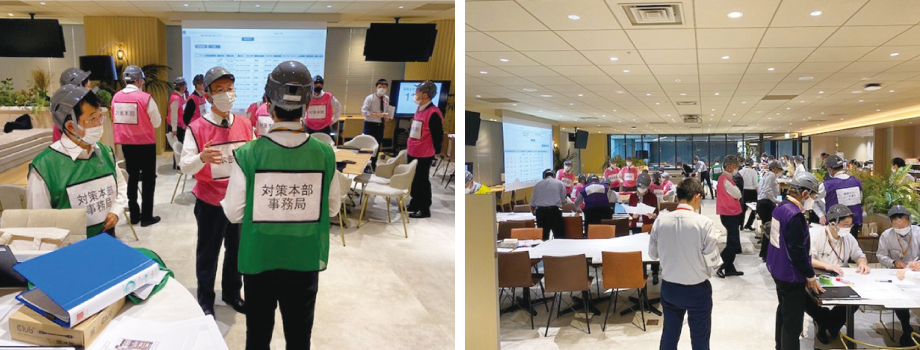
BCP training at the Head Office
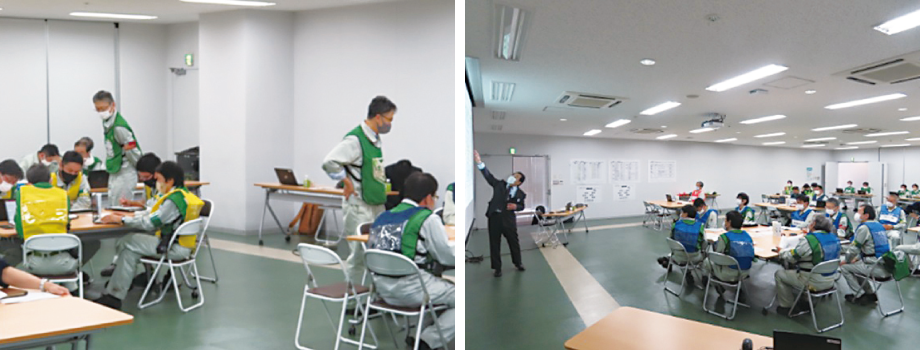
BCP training at Kurami Works
Kurami Works held a workshop-style training in March 2021. In order to make effective use of training time, issues were organized in advance, and on the day of the training, each of us brought issues to the table for discussion. Each team made a to-do list of items necessary for the initial response after a major earthquake and for planning production for plant restoration. They also discussed necessities in decision-making, including who needs what information at what timing and in what order. We will leverage this workshop’s results to continue our efforts in achieving rapid recovery and providing a stable supply of products in the event of a major disaster.

Iwai Taichi
Administration
Department, Kurami Works
JX Nippon Mining & Metals Corporation
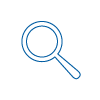 Global Quality Governance
Global Quality GovernanceThe JX Nippon Mining & Metals Group hereby sets forth, and acts in observance of, this Basic Quality Policy in order to contribute to the development of a sustainable society while recognizing that its social mission is to stably supply nonferrous metals and materials.
1. Grasp the requirements of customers and society correctly in order to offer products and services that customers can trust and that satisfy their needs.
2. Improve and maintain quality in all processes from development, design, and production to delivery, while paying due attention to safety and environmental conservation.
3. Establish a quality management system, carry out continual improvements, and develop human resources.
4. Comply with all pertinent laws and regulations of Japan and other countries, and provide customers and society with accurate information on quality.
The Group has and operates a quality management system (QMS) to realize our Basic Quality Policy. We work to continually make improvements through steady PDCA cycles, aiming to realize better quality through the QMS. Company sites both in Japan and overseas have acquired QMS third-party certification (ISO 9001, etc.).
In addition, the Group reviews quality improvement activities and establishes action plans through the Quality Management Meeting, which is made up of top management. We also hold Quality Assurance Managers’ Meetings twice annually to share information on quality management. Participants share the action plans adopted at the Quality Management Meeting and share issues encountered and best practices found at each site to promote interactions among quality assurance managers.
Isohara Works; Kitaibaraki Precision Co., Ltd.; Kurami Works; JX Nippon Coil Center Co., Ltd. (Kurami Office, Kawasaki Office); Hitachi Works (Copper Foil Dept.); Ichinoseki Foil Manufacturing Co., Ltd.; JX Metal Smelting Co., Ltd. (Saganoseki Smelter & Refinery, Hitachi Refinery); Japan Copper Casting Co., Ltd. (Saganoseki Works); JX Metals Trading Co., Ltd. (Takatsuki Plant); JX Metals Precision Technology Co., Ltd. (Esashi Works, Nasu Works, Kakegawa Works); TANIOBIS Japan Co., Ltd.; and Toho Titanium Co., Ltd. (Headquarters/Chigasaki Plant, Hitachi Plant, Yahata Plant, Wakamatsu Plant, Kurobe Plant)
Nippon Mining & Metals (Suzhou) Co., Ltd.; Nikko Fuji Precision (Wuxi) Co., Ltd.; JX Nippon Mining & Metals Dongguan Co., Ltd.; Nikko Metals Taiwan Co., Ltd. (Longtan Works, Kuanyin Works); JX Nippon Mining & Metals Philippines, Inc.; JX Nippon Mining & Metals USA, Inc.; JX Nippon Mining & Metals Korea Co., Ltd.; TANIOBIS GmbH (Goslar); TANIOBIS Smelting GmbH & Co. KG (Laufenburg); TANIOBIS Co., Ltd. (Map Ta Phut); Materials Service Complex Malaysia Sdn. Bhd.; Materials Service Complex Coil Center (Thailand) Co., Ltd.; and SCM Minera Lumina Copper Chile
The Quality Control Department is in charge of planning, proposal, promotion, and oversight for enhancement of Group-wide quality control. This department is also engaged in clarifying Group-wide QMS requirements, improving the effectiveness of internal quality audits, and supporting quality improvement activities and quality control education at manufacturing sites.
In fiscal 2020, we continued to remotely conduct internal quality audits at more than 40 sites in Japan and overseas, despite restrictions imposed by the COVID-19 pandemic.

Remote audit by the Quality Control Department
The Group promotes the implementation of an automated quality inspection system to improve reliability and efficiency, as well as to prevent human error in quality inspections for a wide range of Group company products. In fiscal 2020, despite impact from the spread of COVID-19, we were able to advance implementation almost entirely as planned, with our future tasks including sharing best practices and rolling this out to new businesses.
In fiscal 2020, there were no claims pursued under the Product Liability Act due to personal or property damage caused by defects in products made by Group companies.
In accordance with the Basic Quality Policy, the Group provides customers with information on its products and services through product specifications and Safety Data Sheets (SDS)*. For example, sulfuric acid sold by Group companies is designated as a deleterious substance under Japan’s Poisonous and Deleterious Substances Control Act. By limiting our business partners to sellers of poisonous or deleterious substances and issuing SDSs, we strive to prevent serious negative effects on the occupational health and safety for our customers and their employees after delivery.
* A Safety Data Sheet (or SDS) is a document that provides information on chemical substances, product names, suppliers, hazards, safety precautions, and emergency responses with regard to a given chemical product.
While improving the Group’s quality control level, we also provide quality control education to all employees to improve their problem identification and resolution capability, helping them to logically infer the root cause of a problem and independently resolve it. The Group has developed a wide range of well-established training programs, from introductory to advanced, tailored to the level of participants, and systematically provides training to individual employees according to their occupation and years of service.
Starting in fiscal 2020, the Company’s Quality Control Department encourages internal quality auditors to acquire qualifications such as QMS Auditor and is introducing retrospective training from outside instructors in order to improve their competence.
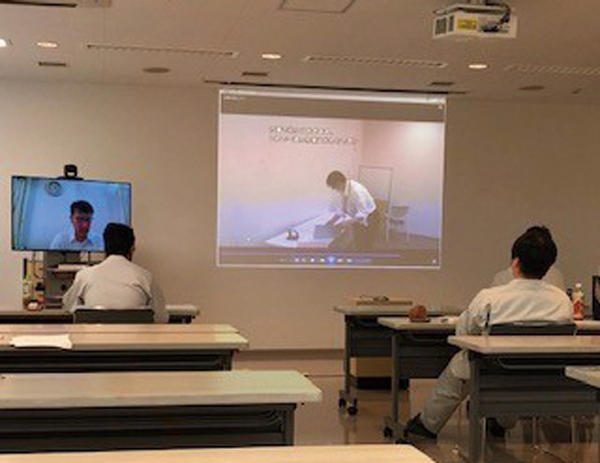
Participants attend a remote education session at Hitachi Works
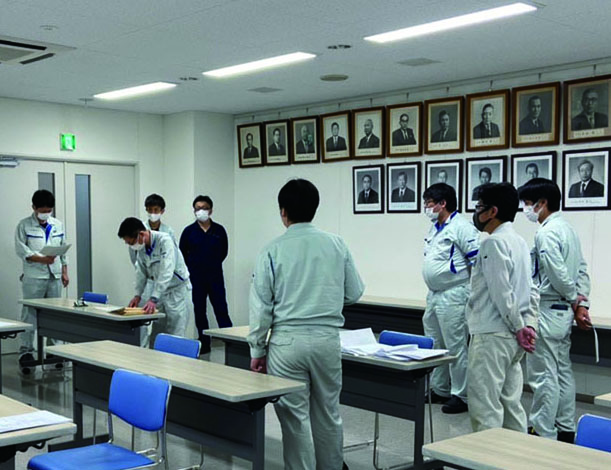
Practical exercises during a remote education session
I attended an ISO 9001 internal auditor seminar with the goal of becoming an auditor serving in internal quality audits for plants and Group affiliates both in Japan and overseas. At this seminar, I learned the principles of the process approach, as well as the importance of assessing not only conformity with requirements, but also effectiveness in achieving quality objectives. These lessons helped me obtain certification.
In the future, I would like to use the lessons from this seminar to conduct audits with a close understanding of the actual situation of the auditees, and build strong trust relationships. I will also work hard to further improve my skills as an internal quality auditor so that I can contribute to the improvement of our QMS.

Watanabe Satoko
Technology Group, Quality Control Department
JX Nippon Mining & Metals Corporation